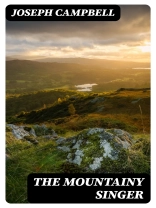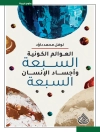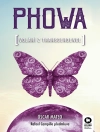In ‘The Mountainy Singer, ‘ Joseph Campbell delves into the rich tapestry of myth, exploring the connections between storytelling and the human experience. Written in a lyrical prose style that weaves together personal anecdote with philosophical reflection, the book transcends conventional narrative forms, inviting readers to engage deeply with the archetypes that define cultures across time and space. Through vivid imagery and evocative language, Campbell examines the universal themes of heroism, transformation, and the search for meaning, set against the backdrop of various mythic traditions. Joseph Campbell, a preeminent scholar of mythology, synthesized his extensive knowledge of diverse cultural narratives into this profound work. Drawing from his early pursuits in comparative mythology and literature, Campbell sought to illuminate the timeless truths embedded in legends and tales. His experiential journey in the realm of myth informed his belief in their power to shape individual lives and societal frameworks, making ‘The Mountainy Singer’ a crucial contribution to his legacy. I wholeheartedly recommend ‘The Mountainy Singer’ to anyone interested in the profound impact of mythology on personal and collective identity. Campbell’s insights resonate with both the intellectual and the emotional, making this work an essential read for scholars and laypersons alike who seek to understand the deeper currents that guide human behavior and belief.
Sobre el autor
Joseph Campbell (1879-1944) was a notable Irish poet and lyricist, whose literary work was profoundly inspired by the rich folk tradition and the volatile political landscape of his homeland. ‘The Mountainy Singer, ‘ published in 1909, is among Campbell’s celebrated collections that encapsulate the rustic beauty of rural Ireland, the spiritual connection with nature, and the poignant emotional undertones of political struggle. In this lyrical ensemble, Campbell’s verse is often characterized by its melodic quality and its fusion of Celtic mythos with contemporary themes. His influence can be seen in the way he intertwines the personal with the national, framing individual experience within the broader narrative of Irish identity and resistance. Also known by the Gaelic name Seosamh Mac Cathmhaoil, Campbell’s literary style, which merges simplicity with depth, is regarded as both accessible and profoundly moving. He was a part of the Irish Literary Revival, a movement that sought to cultivate a distinct Irish cultural identity and reclaim the nation’s literary heritage. Throughout his career, Campbell’s works have been lauded for their authenticity and lyricism, forging a legacy as a voice of the Irish spirit and making an indelible mark on early 20th-century Irish literature.












